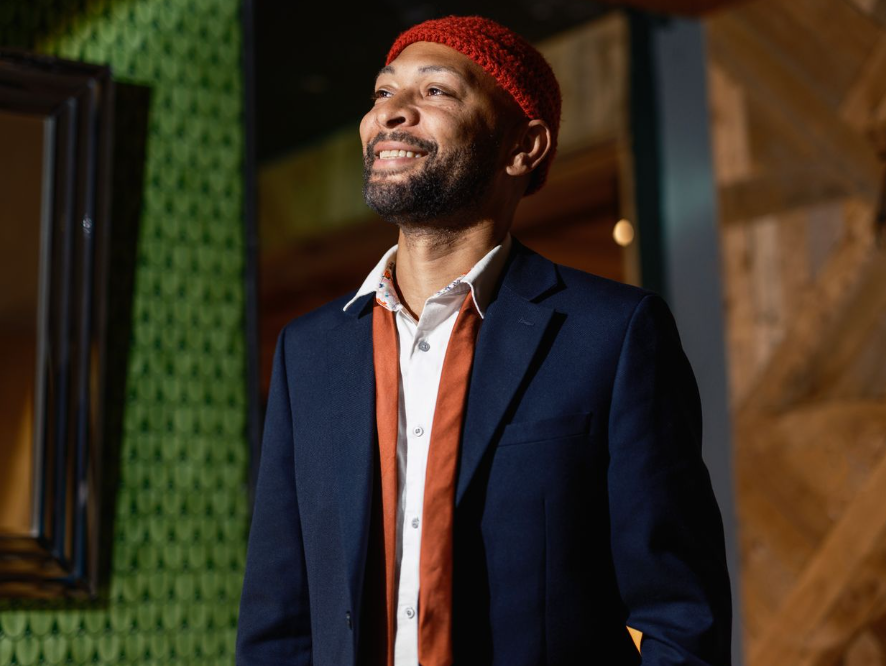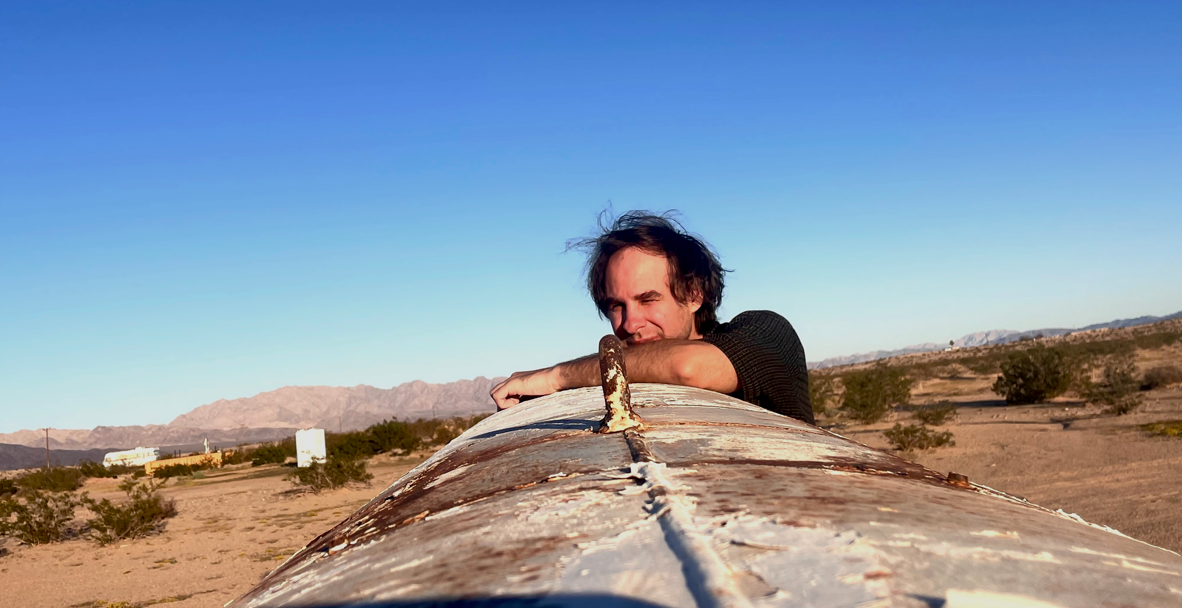
Smoking Tigers Poster
via Tribeca Film Festival
Tribeca Film Festival took place in New York City from June 7th to 18th. With celebratory ceremonies, fascinating film premieres, and even the announcement of the upcoming De Niro Con — it was a jampacked two weeks for filmmakers and film lovers alike.
All over the city, fans scrambled to access rush screenings, catch a glimpse of their favorite actors strutting along makeshift sidewalk red carpets, and spot said celebs at popular downtown eateries and bars. Honestly, this is what living in New York is generally like, with celebrity events and premieres happening every day. But for two weeks, the excitement was concentrated in Tribeca.
And there I was, in the thick of it. Between tearing from screening rooms to AMC theatres, it’s easy to get swept up in managing the logistics and stress. Darting from show to show and scouring unknown neighborhoods for lunch spots, life as a writer and reviewer at Tribeca is far from glamorous. But after viewing a heaping slate of Tribeca’s selection of films, I was able to parse out some common themes.
What were the best films at Tribeca Film Festival?
With thousands of films submitted each year, the films Tribeca Festival selects are always the cream of the crop. Tribeca 2023 highlighted 109 feature films helmed by 127 filmmakers spanning 36 countries. Within the lineup, 93 showings were world premieres, there was one international premiere, 8 North American premieres, one U.S. premiere, and 6 New York premieres.
The festival is also a competition, with filmmakers competing for recognition in the following categories:
- U.S. Narrative
- International Narrative
- Documentary
- Shorts
There are special categories like Human/Nature and the Nora Ephron Award, plus categories for music, audio storytelling, games, and XR.
Major winners at Tribeca Film Festival 2023 include:
- Cypher (US): Tierra Whack stars in Chris Moukarbel’s Best US Narrative winner, one of the major honors of the night. With the jury saying: “For its kaleidoscopic use of music, created imagery and found materials, in service of an interrogation of celebrity, conspiracy culture and the nature of narrative reality itself.”
- Smoking Tigers (US): So Young Shelly Yo was awarded many-many honors for this feature, including Best Screenplay in a U.S. Narrative Feature, Best Performance in a U.S. Narrative Feature for Ji-Young Yoo for Smoking Tigers, and the Nora Ephron Award Special Jury Mention. The jury commented: “This screenplay pulled us into its leading characters, making us care deeply about their pasts and futures. It skillfully juggled multiple storylines and journeys with nuance, emotional honesty, deft sequencing until the final beautiful scene.”
- Between the Rains (Kenya): Creators Andrew H. Brown and Moses Thuranira were awarded Best Documentary Feature and Best Cinematography in a Documentary Feature. Comments from the Jury mentioned: “For craft, storytelling, impact — and above all a raw, elegant coming-of-age portrait of resilience that unanimously blew us away.” And . . . “Combining the patience and elegance of portraiture — with the immediacy of observational cinema verite — this cinematographer truly transported us into a rarely seen world.”
- A Strange Path (Brazil): This received all the awards for International Narratives. Yes, all four of them! It was awarded: Best International Narrative Feature, Best Performance in an International Narrative Feature for Carlos Francisco, Best Screenplay in an International Narrative Feature for Guto Parente, and Best Cinematography in an International Narrative Feature for Linga Acácio.
- Mountains (US): Monica Sorelle received the U.S. Narrative Feature Special Jury Mention for this film’s “authentic, specific portrayal of a culture we had not seen on screen. A deeply emotional and empathetic portrait of a family in a changing world with brilliant leading performances.”
What were the Tribeca Film Festival 2023’s major themes?
After enduring a barrage of press about sensationalized (but subpar) works at festivals like Cannes — I’m talking about The Idol, of course — witnessing the celebration of thoughtful, transformative pieces at Tribeca felt rare. And since art reflects our life and times, the themes of major Tribeca films offer us a glimpse into the zeitgeist.
It’s interesting to note that, despite films starring mega names like Jon Hamm, Tina Fey, and Nick Jonas, the work that received the highest honors were those with highly developed characters and stories.
When surveying the big winners, it appears that the jury was most compelled by stories that dealt with identity, belonging, and an immersive sense of place. A Strange Path was lauded for how it “radiated a magnetic realism,” which can be applied to many of the winners.
Smoking Tigers is intimate and immediate, painting a lush portrait of a singular experience that — due to the expert wielding of perspective — feels inviting to the viewer. This sense of “magnetic realism” emanates from the characters (for whom we feel so much empathy), as well as the place, which becomes as emotionally potent to us as it does for the characters.
Cypher manages to evoke that feeling while being an experimental, surrealist portrait that blends fact and fiction. It manages this ambitious feat by drawing on Tierra Whack’s own charisma as a character so the viewer is anchored to the fast-moving world we’re plunged into.
All these films demonstrate a viewer’s desire to connect with compelling places and characters — the fundamentals of film that can get lost amidst the grind of the Marvel machine and celeb-driven cash grabs.
Even amongst the festival-wide programming, connection was a theme that binds many of the films together. Particularly, reunion after being distanced, and reconnection after a death. Since the festival’s closing, I’ve been mulling over the vast number of films and the judges’ verdicts. And I’ve been thinking about the common themes raised by this year’s lineup.
What keeps coming back to me is the idea of healing. While there wasn’t a preponderance of “Covid” films, many had a post-Covid resonance.
Films about returning to your childhood home. About feeling isolated. About grief. About reconciling with family — anyone who lived at home or lost a loved one during the pandemic can relate. Indeed, sitting in Q&As with writers and directors after some screenings, fellow audience members shared stories about their own losses and homecomings. In the dark of those theaters, audiences made sense of our own lives from the perspectives of the characters on the screen — a testament to fine cinema.
And while a number of these films are imperfect, many of the characters predictable, and the narratives too linear, I think it indicates that we’ve reached the first wave (no pun intended) of Covid narratives. These stories aren’t directly about viruses or lockdowns. Instead, they’re about how living through two years defined by distance has shaped us, and is still shaping us, socially, psychologically, and emotionally.
- ‘The Good Half’ Review: Nick Jonas and Brittany Snow Are Heartbreaking and Heartwarming ›
- ‘Eric LaRue’ Review: After Soaring in Succession, Skarsgard Transforms in ‘Eric LaRue’ ›
- “Cold Copy” Review: Tracee Ellis Ross’s Magnetic Personality Buoys Flaccid Film Noir ›
- “He’s Not A Villain, He’s An Animal:” Alex Montaldo On Playing “The Bad Guy” In The Seeding ›
- ‘Maggie Moore(s)’ Review: Jon Hamm, Tina Fey, and Not Much Else ›
- “The Line” Review: White on White Violence — Alex Wolff and Austin Abrams In a Portrait of Privilege ›
- 16 Films To Look Forward to at Tribeca Film Festival ›














